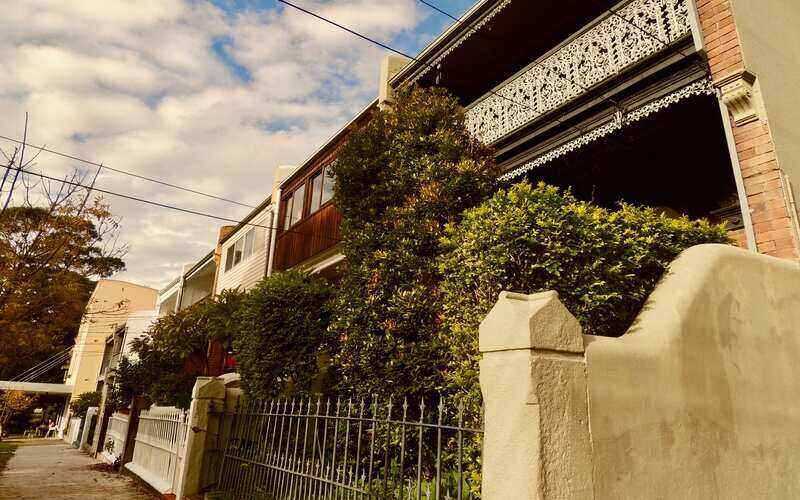While this is obviously a daunting reality for renters, it also puts landlords in a difficult situation.
Many landlords who rely on their rental income to get by are now worried about how they will cope financially if their rental income dries up - particularly if they are facing their own financial difficulties (such as job losses) as a result of the virus.
If you’re a landlord, here’s what you need to know if your tenant can no longer pay the rent because of the coronavirus.
What’s on this page:
- Is there any government support for landlords?
- Deferring mortgage repayments
- What the six-month moratorium on evictions means for landlords
- Will landlord insurance cover me if my tenant can’t pay the rent?
- Is it too late to take out landlord insurance?
- How to work together with your tenant
Is there any government support for landlords?
A few state governments have announced assistance packages for both renters and landlords. In New South Wales and Victoria, landlords can receive a land tax rebate up to 25% if they are accommodating tenants under financial stress.
The Queensland government is also providing eligible tenants with up to $500 per week in rent relief for up to four weeks (a maximum total payment of $2,000).
At the time of writing, the other states are yet to officially announce support measures for landlords, although they are expected to offer similar packages.
Property Investment Professionals of Australia (PIPA) chairman Peter Koulizos said this, combined with the JobKeeper initiative should go a long way towards assisting landlords.
“If the government focuses on supporting the tenant, the landlords don’t need any special treatment,” he told Savings.com.au.
“So far as the business relationship between landlord and tenant is concerned, the landlord’s greatest need is for the rent to be paid.
“If this is done by the tenant or in conjunction with rent subsidies or the JobKeeper payments, then the landlord can keep paying their bills or if they are retired, they can continue to live as a self-funded retiree.”
Deferring mortgage repayments
Most of the banks are offering some form of mortgage support right now, including deferring mortgage repayments for up to six months for customers experiencing financial hardship. This is applicable to landlords who are experiencing financial stress as a result of their tenant no longer being able to afford the rent.
Some banks are allowing all their home loan customers to defer their mortgage repayments with no questions asked, while others are doing so on a case by case basis. It’s best to check directly with your bank or lender to find out if you are eligible.
But it’s important to understand that deferring your mortgage will cost you - interest is still accruing on the principal loan amount during this period of deferment, which means that the interest you don’t pay during your period of deferral is added to your outstanding loan balance.
This is called interest capitalisation and it can make your mortgage more expensive in the long run, particularly for landlords who will find it harder to claw back the rent they’ve lost in that time.
Mr Koulizos said landlords should only defer their mortgage repayments if they have no other option.
“The best option is for the landlord to keep making their mortgage repayments. However, this assumes that they can keep making their mortgage repayments,” he said.
“If the rental income is diminished by a small amount during the COVID-19 crisis, the landlord could probably afford to go from principal and interest to interest-only mortgage repayments.
“However, if a landlord is losing a significant proportion of their rent and they will find it difficult to pay their mortgage repayment, they should just defer their mortgage repayments.”
Mr Koulizos also says switching to interest-only repayments can reduce monthly mortgage repayments but deferring them will relieve huge amounts of stress if a landlord is experiencing cash flow issues.
“Deferring mortgage repayments will cost more in the long run but especially in these tough times, it doesn’t matter how much you own in bricks and mortar, it’s all about the cash flow. Cash flow is the lifeblood of businesses and property investors.”
Landlords should also keep in mind that other costs such as strata levies, maintenance and emergency repairs, insurance, and council and water rates will also continue even if you do defer your mortgage repayments (unless the council or other representative body decides to temporarily waive these costs).
Funds in your redraw facility could also be impacted if you choose to defer mortgage repayments, according to mortgage broker Jane Slack-Smith from Investors Choice Mortgages.
“They (the bank) will freeze any funds in your redraw so you may want to move those funds to your offset,” she told Savings.com.au.
“If you are with a lender who is not an Authorised Deposit-Taking Institution (ADI) then they could also freeze funds in the offset.
“There are long-range issues associated with hardship; although it won’t hit your credit file it may delay when you can refinance in the future after you return to full mortgage payments. Lenders may want to see six months of full payments.
“We don’t know how lenders will treat this in the future when we return to normal.”
We’ve written more about the impacts of deferring mortgage repayments here.
What the six-month moratorium on evictions means for landlords
Prime Minister Scott Morrison announced that the states and territories will be moving to put a six-month moratorium on evictions for renters who are in financial distress as a result of the coronavirus and can no longer pay their rent.
Basically what this means is that renters can’t be kicked out of their home for the next six months if they can’t pay their rent due to financial distress caused by the coronavirus (such as losing your job).
This doesn’t mean this is an opportunity for tenants to avoid paying rent if they can otherwise afford to continue doing so. Tenants need to have a valid reason and be able to provide proof they are suffering financial hardship caused by the crisis.
However, because residential tenancies come under state and territory government rules, a moratorium isn’t legally binding until the states and territories have changed the laws.
While landlords can’t evict tenants who are unable to pay rent because of COVID-19 job losses, they can still evict tenants on other grounds, such as unlawful use of the property as well as wilful damage and violence.
Will landlord insurance cover me if my tenant can’t pay rent?
Under normal circumstances, landlords are covered by landlord insurance if their tenant doesn’t pay the rent for a certain period of time until a resolution with the tenant is achieved.
In the current COVID-19 world, landlord insurance may cover you if your tenant can no longer pay the rent because of the coronavirus, but Ms Slack-Smith says every policy is different so check yours to see if you’re covered.
“There is some discussion at the moment that new policies don’t cover this so check before you sign up,” she told Savings.com.au.
It’s also worth noting that allowing your tenant to pay reduced rent for a period of time could void your landlord insurance.
“There is a legal contract between the landlord and the tenant. If the landlord breaks that contract by agreeing to less rent or a delayed payment option, then this could break the terms of the landlord's insurance so check first,” Ms Slack-Smith said.
Some landlord insurance policies may have different remedies for different forms of loss of rent, according to Mr Koulizos.
For example, one landlord's insurance policy outlines two definitions for loss of rent and two different remedies as:
Absconding tenant: if the tenant vacates without giving notice in accordance with their lease or gives the required notice but leaves with unpaid rent or leaves at the end of their lease owing rent, the insurance company may pay up to 20 weeks rent.
Hardship: if a court (tribunal) awards the tenant a release from their lease obligations due to hardship, for example, a change of income which is very likely during the COVID-19 crisis, the insurance company will only pay a maximum 4 weeks rent.
Because of this, Mr Koulizos urges landlords to read the fine print of their insurance policy,
“If the tenant just ups and leaves, you might get up to 20 weeks rent. However, if you go through the due process and the court (tribunal) says that the tenant is facing hardship and can leave your premises, the insurance company will only pay up to four weeks rent and they won’t chase the tenant to get back the four weeks rent,” he said.
Is it too late to take out landlord insurance?
By the time a bushfire burns through your neighbourhood, it’s usually too late to take out home insurance and make a claim.
Unfortunately, it’s a similar story for landlord insurance. Many insurers have now stopped offering landlord insurance altogether in the wake of the coronavirus crisis while others are no longer offering cover for non-payment of rent.
If you already have landlord insurance, it’s important to note that the six-month moratorium on evictions could impact your ability to make a claim. Having landlord insurance also doesn’t necessarily cover you for non-payment of rent either.
For those who already have landlord insurance, it’s best to check directly with your insurer to understand what your policy covers.
How to work together with your tenant
Landlords can get a bad wrap but many are trying to do the right thing by their tenant.
Mr Koulizos said rather than play hardball with tenants, landlords should think about what the right moral and ethical thing is to do.
“No matter which state or territory you live in, the first thing landlords should do is communicate with the tenant,” he said.
“They should both check whatever guidelines and legislation are relevant for their state and territory so that any solution that is agreed upon does not contravene these guidelines or rules,” he said.
“In addition, landlords should check their insurance policies to ensure that whatever is decided upon does not disqualify them from claiming on the insurance policy in regards to the loss of rent. Tenants also need to check with tenant advocacy groups so as to get some advice.
“As many aspects of residential tenancies are still unclear, it is up to landlords and tenants to reach an amicable agreement. Landlords (and tenants) need to work together to arrive at solutions for the common good.
“The focus shouldn’t be on just what is legally correct based on the tenancy agreement but also consider what is the moral and ethical thing to do.”
Savings.com.au’s two cents
The coronavirus crisis has impacted all of us, some more than others. Renters who have lost their jobs have found themselves in a position no one wants to be in, where they can’t afford to pay their rent anymore.
This can be hard for landlords too, particularly if they’ve also been financially impacted as a result of the coronavirus crisis.
For landlords in this position, the first thing you could do is see if your tenant can manage a rent reduction rather than stop paying rent altogether. If that’s a no go, your tenant may be eligible to receive rent relief, depending on which state or territory they live in.
Other options to consider include deferring mortgage repayments or making interest-only repayments until the crisis is over or your tenant is in a better financial position.
You may also be eligible to receive landlord insurance to cover lost rent, but make sure you read the fine print carefully.
Above all, remember to work with your tenant to find a solution that will work for you both - don’t play hardball. After all, in this environment, it may be more difficult to find a new tenant.

Ready, Set, Buy!
Learn everything you need to know about buying property – from choosing the right property and home loan, to the purchasing process, tips to save money and more!
With bonus Q&A sheet and Crossword!



 William Jolly
William Jolly
 Harry O'Sullivan
Harry O'Sullivan













